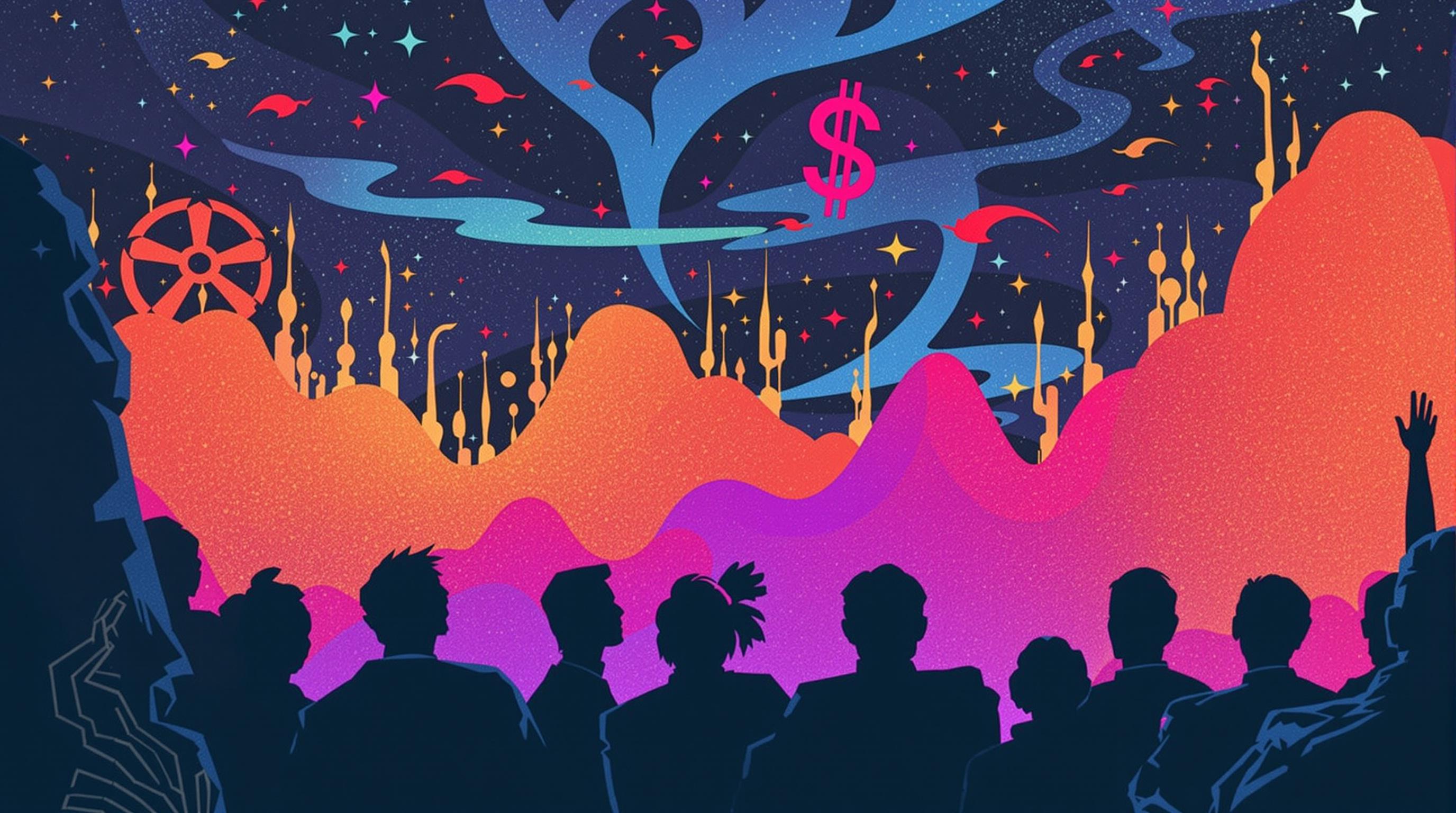Related Articles
- The Influence of Urban Legends: How Folklore Shapes Investor Behavior in Today's Financial Landscape
- The Role of Personal Narratives: How Your Story Shapes Investment Choices and Risk Tolerance
- The Ripple Effect: How Social Media Influencers Steer Investor Sentiment in Unexpected Ways
- Beneath the Surface: Investigating the Silent Influence of Underground Economies on Legitimate Market Trends
- Navigating the Bizarre: The Influence of Esotericism on Modern Investment Strategies and Market Speculation
- Rethinking Risk: The Surprising Link Between Urban Architecture and Financial Instability in Emerging Markets
Navigating the Noise: How Meme Culture is Shaping Unexpected Asset Volatility and Investor Behavior
Navigating the Noise: How Meme Culture is Shaping Unexpected Asset Volatility and Investor Behavior
Meme culture is not just a source of entertainment; it has emerged as a powerful force in shaping asset volatility and influencing investor behavior. By intertwining humor, virality, and financial speculation, memes are creating unexpected ripples in markets and challenging traditional investment paradigms.
The Rise of Meme Culture
To understand how meme culture is impacting financial markets, we first need to explore how it gained prominence. In the last decade, platforms like Reddit, TikTok, and Twitter have fostered communities where memes emerge rapidly, often fueling trends and shaping public opinion. According to a Pew Research Center study in 2021, 69% of adults aged 18-29 admitted to using memes to express their opinions on social media.
User-Generated Content: The New Market Maker
Investment today often feels like a game where the players are not traditional hedge fund managers but everyday internet users who share memes that influence financial decisions. Case studies of GameStop and AMC theaters demonstrate how retail investors orchestrated trading frenzies driven by meme culture, catching institutional investors off-guard. According to a report by the Wall Street Journal, this frenzy drew in over 10 million shareholders to GameStop at its peak.
Humor Meets Serious Investment
This interaction between humor and finance perplexes traditional investors. How does a meme about a squeezy toy lead to a surge in stock prices? The answer often lies in collective human behavior, where the notion of "FOMO" (Fear of Missing Out) amplifies the impact of viral content. A survey by Finra in 2020 found that 47% of individual investors had made stock trading decisions influenced by online trends or memes.
Meme or Meme-nomenon?
Consider Elon Musk tweeting about Dogecoin, a cryptocurrency that started as a joke but now boasts a market cap in the billions. Musk's tweets create immediate market reactions, leading to wild asset volatility. In May 2021, after one of his tweets, Dogecoin's price dropped by 40%, showcasing the unpredictability of meme-influenced assets. The interplay of social media and finance fosters a new age of rapid price movements based on the whims of trending memes.
The Psychology Behind Meme Investment
Speaking of whims, the psychology behind meme investment is intriguing. Behavioral finance emphasizes that investors are influenced by emotions and social factors. The meme environment fosters a sense of community and belonging, encouraging individuals to invest in assets like GameStop, often disregarding conventional analyses. As noted by the Harvard Business Review, this phenomenon can lead to "herding behavior," where investors follow the crowd instead of making independent decisions.
Case Study: GameStop
The unprecedented rise of GameStop’s stock is the most cited example of meme culture's impact on investor behavior. Reddit's WallStreetBets community used memes and inside jokes about the stock to rally support, spurring a short squeeze that overwhelmed hedge funds. The stock price soared to nearly $483 in January 2021 before dramatically crashing back down, showcasing extreme volatility driven by internet-fueled enthusiasm.
A New Investment Paradigm
With all this noise, is the market fundamentally changing? The way we view and interact with financial assets has shifted dramatically. Younger generations, particularly Gen Z, are video game natives who view investing through a lens of entertainment rather than as a serious endeavor. According to a 2022 Charles Schwab report, over 60% of young investors consider memes an essential aspect of their investment strategy.
The Meme Effect on Traditional Assets
Traditional investment assets like stocks, bonds, and even NFTs are now experiencing the "meme effect." A meme-driven surge could cause even previously stable stocks to spike briefly, only to plummet when the meme's virality fades. This volatility is making investors skittish; even seasoned traders feel compelled to update strategies to accommodate these ephemeral market movements.
From Reddit to the Real World
Reddit is a powerful force, but the shift isn't contained to one platform. TikTok, in particular, has become a growing influencer in asset volatility. Financial influencers, often viewed through a humorous lens, are amassing substantial following, leading viewers to invest based on extensive TikTok tutorials, sometimes ignoring crucial market fundamentals. Reports indicate that nearly 25% of TikTok users regularly seek investment advice from video creators.
Social Impact: The Future Investor
The implications of meme culture extend beyond just trading; they encompass social responsibility and ethics in investment. Young investors, particularly millennials and Gen Z, are gravitating toward companies that align with their values, spurred on by viral trends on social media platforms. Adopting this mindset, investors are more inclined to support brands promoting environmental sustainability, social justice, and corporate accountability.
The Paradox of Choice
Ironically, while meme culture encourages investment participation, it often leads to confusion and indecision. The vast array of choices—each represented by catchy memes and flashy graphics—can overwhelm investors. Research from Stanford revealed that having too many options can trigger buyer's remorse, making individuals less confident in their decisions.
The Casual Investor
Who exactly is the "casual investor"? Picture a 20-something sitting in their pajamas, scrolling through TikTok, and coming across a catchy video about a meme stock. This individual isn't just a passive consumer; they become an active participant in the market, often trading based solely on viral content, disregarding traditional investment wisdom. As of 2023, approximately 29% of millennials reported they engage in trading influenced by social media alone.
A Cautionary Tale
Investors embracing the meme dynamic must tread cautiously. The allure of quick gains can lead to significant losses, as many have experienced during market corrections that plague speculative stocks. The key takeaway here is to do one’s due diligence and not allow the hype to dictate financial decisions. Financial literacy remains essential, despite the pervasive influence of memes.
A Call to Balance
Ultimately, meme culture exemplifies a fascinating intersection of entertainment and finance. It compels us to question the nature of investing and reminds us to embrace adaptability in decision-making. Striking a balance between engaging with memes and adhering to sound investment principles might help investors navigate this new landscape without succumbing to the noise.
In Closing: Be Your Own Meme
As we dive into this unpredictable world of memes and money, one universal truth remains : Don’t take life—or investing—too seriously! Enjoy the whirlwind, learn from the chaos, and remember, every meme has its time in the spotlight before fizzling out. So go ahead; meme your way through the markets—but do it wisely!




